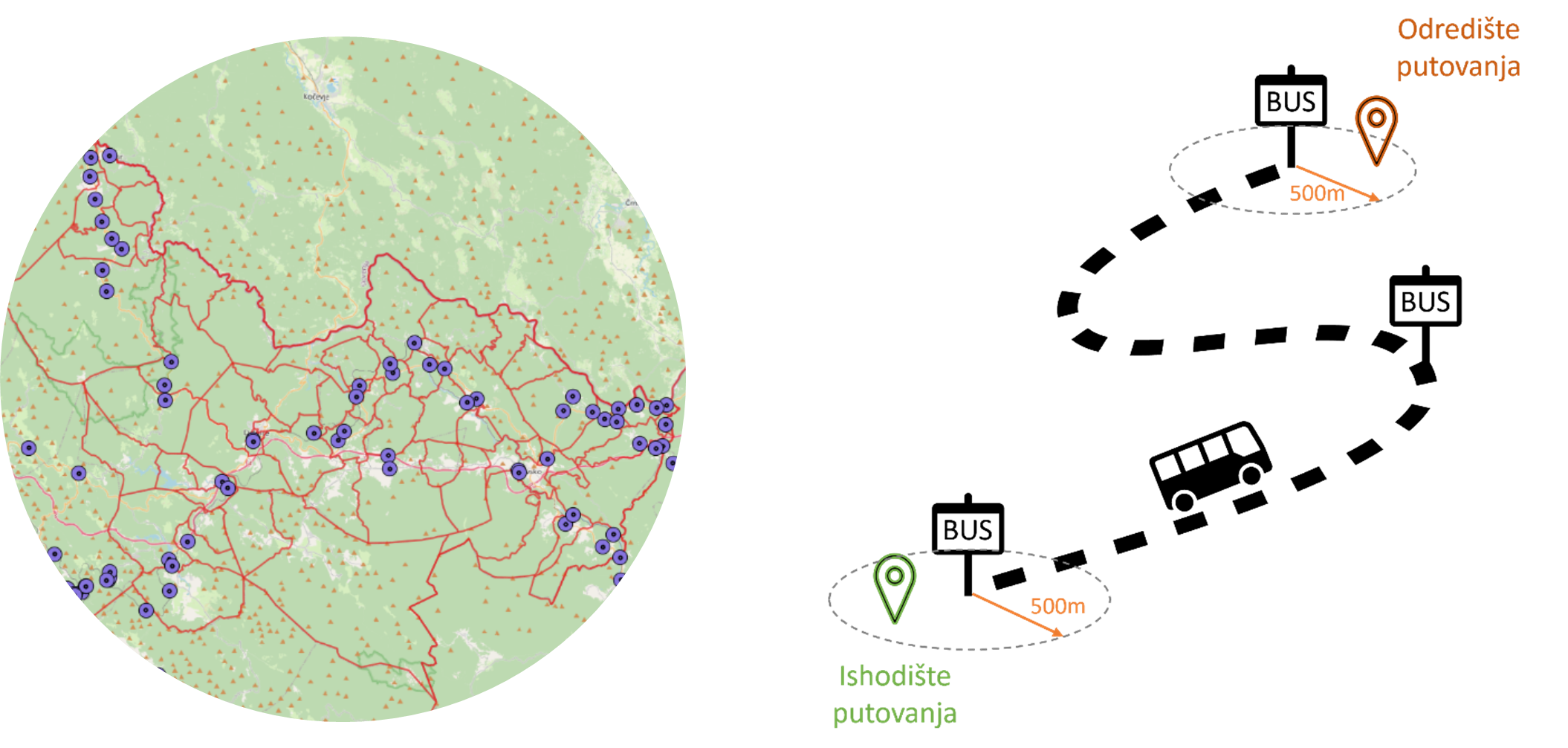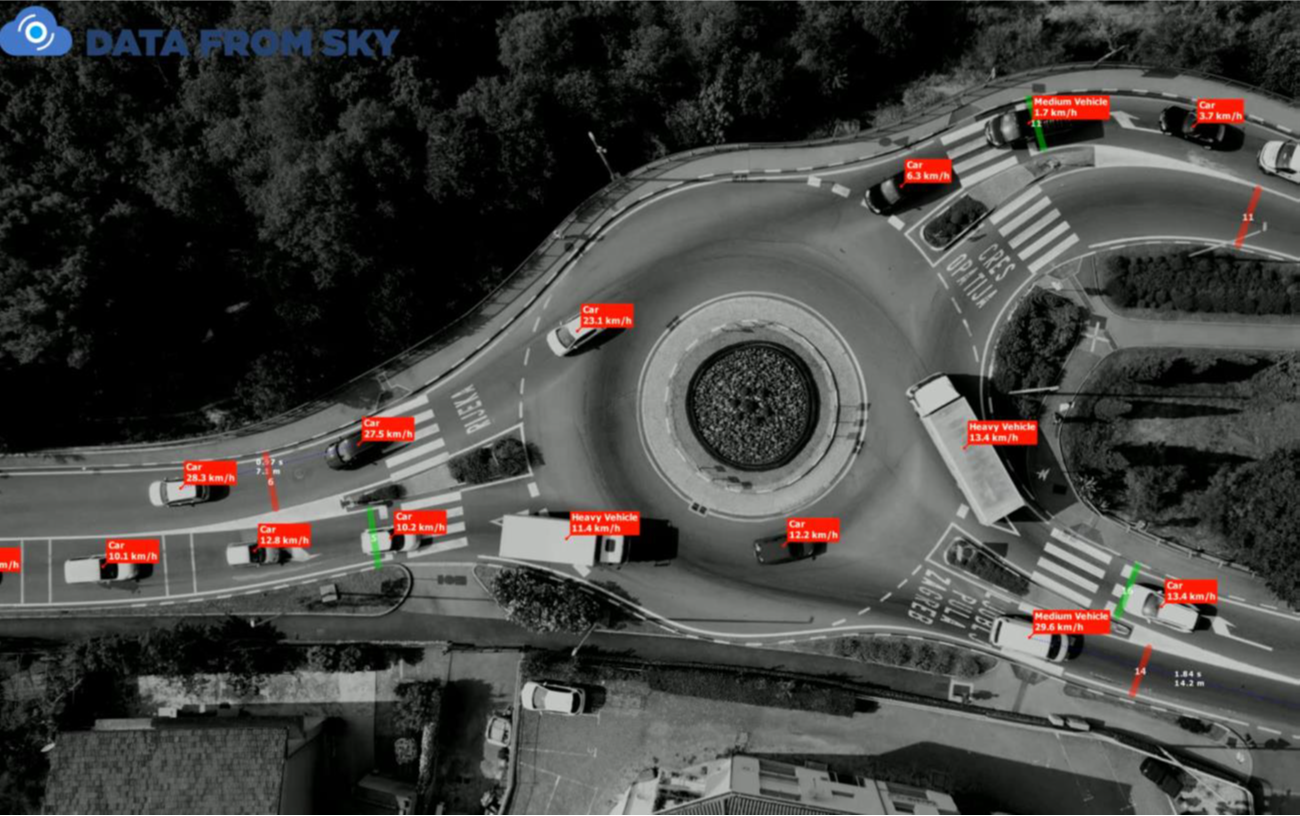Challenges
Ponikve eko otok Krk d.o.o. is one of the most advanced utility companies in Croatia, known for high standards of waste management and integration of sustainability principles. However, despite the developed system, employees still face a large number of repetitive queries from citizens - by telephone, e-mail or physical arrival - regarding the waste collection schedule, sorting, bulky waste, recycling yard locations, etc.
This volume of communication creates an administrative burden, increases labor costs and reduces the time available for strategic activities. In addition, there was a need to modernise the web interface and facilitate access to information – both for the local population and for the growing number of tourists.
Solutions
Through the program Test Before Invest and in cooperation with EDIH Adria, Ponikve Eco tested the potential AI assistant based on large language models (LLM), with the aim of automating responses to citizens’ frequently asked questions, reducing the burden on services and ensuring a better user experience.
Specifically, through the service was developed Functional Conversation Assistant Prototype, which is:
- Uploaded information from publicly available company documentation
- Accessed content from official websites
- Generate answers according to real user scenarios
- It was available via an interface in the web browser (with potential integration into the website)
The questions covered topics such as:
- When and where is a certain type of waste shipped?
- What can be put in a yellow bucket?
- How to report improper waste disposal?
- Where are the recycling yards and what are their working hours?
Prototype is using Retrieval-Augmented Generation (RAG) architecture enabled a combination of generative AI model and accurate, local information from real sources.
Results and Benefits
Testing shows that the introduction of an AI assistant would allow:
- Significant relief of customer service, especially in the season of increased queries
- Faster and more accurate communication with citizens, without the need to wait for an e-mail or phone response
- 24/7 availability of key information through the web, in a simple and understandable way
- Increased transparency and standardization of responses, as all users receive the same, verified information
- Potential reduction in customer service costs, especially in times of seasonal stress
In addition to the benefits for citizens, the AI system is the basis for modernising the digital presence of businesses, which further confirms the role of Ponikve as a pioneer of the green digital transition in Croatia.
Lessons learned
During the testing, important lessons were identified for further implementation:
- Relevance of content is crucial for the accuracy of the response – the system should have access to up-to-date documents and information from the website
- The local context (e.g. street pick-up schedule) requires precisely structured data that can be easily updated
- Multilingualism is desirable due to the large number of visitors – the tested system supports Croatian and English, with the possibility of extension
- The prototype has already demonstrated a high degree of usefulness at this stage, even without full integration with databases or CRM systems
- Access to information via chat interface allows greater accessibility for older users and people with less digital experience
Measurable data
- More than 70% Frequently Asked Questions (FAQs) could be automatically covered by a prototype
- Response time was reduced from a few hours (e-mail) to direct (<5 seconds)
- Potentially reduce customer service burden by 50-60%, especially in the summer season
- Increasing the accessibility of information for non-residents through multi-language support
- Increasing customer satisfaction through transparent and consistent communication
Conclusion
Testing AI assistants in Ponikve eko otok Krk d.o.o. confirmed the high potential of artificial intelligence in improving user communication and digital transformation of the utility sector.
The prototype developed through the EDIH Adria program has shown how modern technologies can be applied in local utility companies, and in a simple and effective way support sustainable business, better information of citizens and strengthening digital accessibility.
The next steps include extending the assistant's functionality, connecting to internal systems (e.g. to automatically display the layout by address), testing with users in real-life conditions, and implementation into the production environment.






